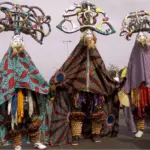In a world often marred by contested elections and reluctant transitions, Liberia’s recent presidential elections stand as a beacon of democratic maturity. The incumbent President, His Excellency, Dr. George Manneh Weah, exhibited statesmanship by conceding defeat in a run-off election held on November 14, 2023. This act of magnanimity provides valuable insights and lessons that extend beyond Liberia’s borders. AkweyaTV shares seven key takeaways from this action.

1. Democracy Triumphs Over Authoritarianism
The Liberian elections underscore the importance of democratic values over autocratic tendencies. Weah’s graceful and timely concession emphasises that political leadership in a democratic society is about more than victory; it is a commitment to the principles that sustain a free and fair electoral process.
As he said in his speech, “My fellow Liberians, ladies and gentlemen, tonight, the CDC has lost the election, but Liberia has won. This is a time for graciousness in defeat, a time to place our country above party, and patriotism above personal interest. I remain your President until the handover of power, and I will continue to work for the good of Liberia. Let us heal the divisions caused by the campaign and come together as One Nation and One United People.”
2. Trust in Democratic Institutions
Unlike some nations entangled in prolonged legal battles after elections, Liberia’s citizens demonstrated a commendable faith in their electoral system. By respecting established institutions and the individuals occupying key roles, the people of Liberia exemplified a commitment to the democratic process, fostering stability and trust in their nation.
3. Healing from a Troubled Past
Liberia’s journey from civil war in the ’90s to embracing unity and strength highlights the nation’s resilience and capacity for positive transformation. From President Weah’s statement quoted earlier, the acknowledgement that sustainable development hinges on unity and cooperation bodes well for Liberia’s future, serving as an inspiration for other nations grappling with internal conflicts.
The former professional football star addressed his followers, whom he affectionately called “members of the Mighty Coalition for Democratic Change, fellow partisans, CDCians, Weahcians, auxiliaries, first-time voters, campaign managers, and party leaders”. He said, “I urge you to follow my example and accept the results of the elections. Go home tonight with the knowledge that our ideals and vision for Liberia remain strong. We are a young movement, and our time will come again. Tomorrow, resume your daily activities in a normal way, and come and join me at our party headquarters to reflect on our journey and plan for our return to political leadership in 2029.”
4. A Leader’s Communication Must be Timely
Conceding speedily and without coercion saved Liberia from anxiety and descent into violent conflicts that could have occurred if a leader still smarting from defeat had delayed making their position known.
Just like Goodluck Jobathan in 2015, Weah did not await the full announcement of results before his concession speech. “The results announced tonight, though not final,” he said, “indicate that Ambassador Joseph N. Boakai is in a lead that we cannot surpass. Therefore, a few minutes ago, I spoke with President-elect Joseph N. Boakai to congratulate him on his victory.
That said, Weah ensured that he made his supporters feel a slice of the victory. “Tonight, as we acknowledge the results,” he added, “let us also recognise that the true winners of these elections are the people of Liberia.”
5. A Contrast in Leadership Styles
This editorial draws a subtle but poignant comparison with a supposed African giant, Nigeria. Highlighting the Liberia President’s acceptance of defeat, which is reminiscent of Nigerian President Goodluck Jonathan’s then-unprecedented concession to Muhammadu Buhari in 2015, we question the prevalent narrative of widespread corruption and lack of humility among political elites in some nations. This prompts reflection on the role of leadership in shaping a nation’s moral compass.
It is also noteworthy that different circumstances throw up different styles of leadership. A shining example can be found in President Lazarus Chakwera who has embarked on austerity measures to try and stabilise the economy of his country, Malawi, reminiscent of former Tanzanian President, John Pombe Joseph Magufuli.
6. Global Influence of Leadership Examples
Referencing that same concession of defeat by Nigeria’s Goodluck Jonathan in 2015, we note that positive examples can transcend borders. We also feel that this underscores the fact that Nigeria’s preeminent role as an influencer in Africa, owing to its size, wealth, and other endowments, ought to be supported and built. Leaders who exhibit humility in both victory and defeat set a standard for others to follow. AkweyaTV advocates for a collective effort to learn from and emulate these examples to strengthen democratic values worldwide.
7. The Nation Wins When Electoral Processes are Transparent
As President Weah gracefully steps aside, he leaves a legacy of democratic stewardship and a call for national unity. The lesson from Liberia’s elections is clear: humility in leadership, trust in democratic institutions, and a commitment to national unity are crucial for the sustainable development of any democratic society. Other nations, regardless of size, can find inspiration in Liberia’s journey toward political maturity and cooperation. Liberia won, along with its various peoples and individuals. Africa won.
Follow the AkweyaTV channel on WhatsApp: https://whatsapp.com/channel/0029Va7m7dvJuyA7h5XMc22i
















